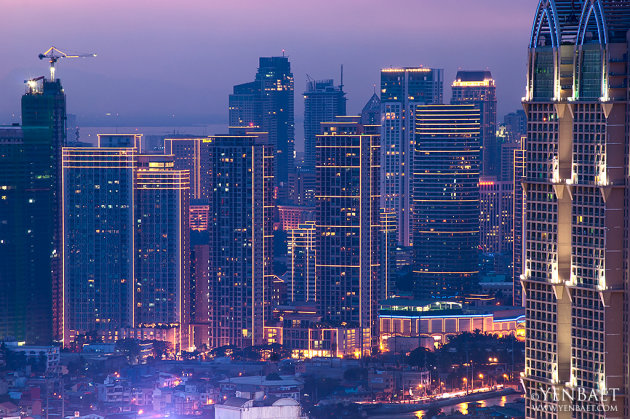Indonesia, Philippines, Malaysia showing resilient growth – SCB
Manila Bulletin
Published: June 8, 2013

ASEAN countries – particularly Indonesia, the Philippines and Malaysia – have continued to grow close to or above trend growth in recent years, despite poor external conditions, a new research conducted by Standard Chartered Bank disclosed. “The growing affluence of the domestic population, relatively healthy fiscal positions, a largely stable political environment and strong liquidity inflows are lending resilience to economic activity, even as external demand falters, “ the British bank with extensive network in the region stressed.
Examining sources of growth over the past decade, we find that the contribution of household consumption increased for Malaysia, Thailand and Vietnam in the 2008-12 period relative to the 2003-07 period.
For Indonesia and the Philippines, the contribution of household consumption was relatively stable; this is not surprising given their relatively closed economies. For Singapore, household consumption remains a small contributor to growth. In fact, Singapore’s economy has become even more open, supporting the case for the continued use of FX as the main monetary policy tool, the SCB paper noted..
“Investment has discernibly increased its contribution to growth in Malaysia and the Philippines. This reflects government efforts to upgrade their economies and positive domestic investor sentiment. With the exception of Singapore, domestic sources have been the key drivers of growth in the region.”
Since 2000, the ASEAN region has been outgrowing the world, the bank said.
“Admittedly, the region has plenty of catching up to do, as it is still relatively undeveloped. With the exceptions of Malaysia, Brunei and Singapore, ASEAN’s per-capita GDP based on purchasing power parity (PPP) is well below that of the world. The region is catching up – ASEAN per-capita GDP has grown faster than global GDP since 2000.”
“This growing affluence is a source of resilience for the region. Intra-regional trade has benefited externally oriented industries, even amid weaker demand from traditional markets such as Europe and China.”
In 2012, ASEAN exports grew just 1.7% amid a weak global trade environment. Exports to countries within ASEAN contributed around 70% of that growth. Had ASEAN been in a weaker position, externally oriented industries would have been hit even harder.
The import profile of ASEAN countries by end-use classification provides some interesting insights (the bank examined the Philippines, Indonesia, Thailand and Malaysia). Comparing the amount of consumer-goods imports with total imports (the sum of consumer goods, intermediate goods and capital goods), we find that the Philippines has the highest proportion of consumer-goods imports. It is followed by Indonesia, Malaysia and Thailand. This is in line with the fact that Indonesia and the Philippines are more closed economies than Thailand and Malaysia. Because domestic consumption contributes a larger share of growth, consumer goods make up a larger share of import content. This is particularly the case for the Philippines.
Thailand and Malaysia are more export-oriented economies. As a result, intermediate goods (inputs for final goods) account for a larger share of their total imports. Meanwhile, imports of capital goods (such as machinery for production) have been increasing for Malaysia and Thailand in the past 1.5 years. We believe this was driven by flood reconstruction efforts in Thailand, and by the ongoing Economic Transformation Program in Malaysia.
Examining sources of growth over the past decade, we find that the contribution of household consumption increased for Malaysia, Thailand and Vietnam in the 2008-12 period relative to the 2003-07 period.
For Indonesia and the Philippines, the contribution of household consumption was relatively stable; this is not surprising given their relatively closed economies. For Singapore, household consumption remains a small contributor to growth. In fact, Singapore’s economy has become even more open, supporting the case for the continued use of FX as the main monetary policy tool, the SCB paper noted..
“Investment has discernibly increased its contribution to growth in Malaysia and the Philippines. This reflects government efforts to upgrade their economies and positive domestic investor sentiment. With the exception of Singapore, domestic sources have been the key drivers of growth in the region.”
Since 2000, the ASEAN region has been outgrowing the world, the bank said.
“Admittedly, the region has plenty of catching up to do, as it is still relatively undeveloped. With the exceptions of Malaysia, Brunei and Singapore, ASEAN’s per-capita GDP based on purchasing power parity (PPP) is well below that of the world. The region is catching up – ASEAN per-capita GDP has grown faster than global GDP since 2000.”
“This growing affluence is a source of resilience for the region. Intra-regional trade has benefited externally oriented industries, even amid weaker demand from traditional markets such as Europe and China.”
In 2012, ASEAN exports grew just 1.7% amid a weak global trade environment. Exports to countries within ASEAN contributed around 70% of that growth. Had ASEAN been in a weaker position, externally oriented industries would have been hit even harder.
The import profile of ASEAN countries by end-use classification provides some interesting insights (the bank examined the Philippines, Indonesia, Thailand and Malaysia). Comparing the amount of consumer-goods imports with total imports (the sum of consumer goods, intermediate goods and capital goods), we find that the Philippines has the highest proportion of consumer-goods imports. It is followed by Indonesia, Malaysia and Thailand. This is in line with the fact that Indonesia and the Philippines are more closed economies than Thailand and Malaysia. Because domestic consumption contributes a larger share of growth, consumer goods make up a larger share of import content. This is particularly the case for the Philippines.
Thailand and Malaysia are more export-oriented economies. As a result, intermediate goods (inputs for final goods) account for a larger share of their total imports. Meanwhile, imports of capital goods (such as machinery for production) have been increasing for Malaysia and Thailand in the past 1.5 years. We believe this was driven by flood reconstruction efforts in Thailand, and by the ongoing Economic Transformation Program in Malaysia.











